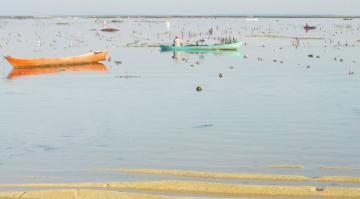Project Summary
Oceans provide resources and ecosystem services to multiple sectors and stakeholders. The goal of ocean management is to accomplish fair and sustainable resource use. This means simultaneously achieving economic development, environmental sustainability, social equity and inclusion across space and time, in a context of growing demand.
Addressing these goals and making trade-off decisions can lead to conflict. Regions where pressures increase at a faster-than-average-rate (so-called “ocean change hotspots”) are particularly susceptible.
Conflict comes in many forms: between many stakeholders or few; persistent or new; and over diverse resources and services. Making trade-offs explicit and differentiating between marine conflict types is crucial to mitigate and resolve conflict. Management should result in enduring and legitimate outcomes, this is particularly challenging in ocean change hotspots.
This project will use a mixed method approach and cross-case study comparison to assess the origin, drivers, and mitigation strategies of ocean conflicts. Each of our six case studies represents a hot spot where a different combination of social and ecological pressures, together with trade-off decisions, triggers ocean conflicts.
The origin of conflicts will be traced, and social-ecological interactions investigated through participatory methods.
Local artists’ visualisations will collaboratively produce culturally meaningful narratives that will explicate trade-offs and their negotiability and allow ocean conflict pathways to be mapped from origin to possible resolution.
The project is balanced in terms of academic disciplines, gender and seniority, and includes an explicit transdisciplinary component that seeks to engage user groups, artists, managers, and scientists together towards a common goal.
Project Partners |
|---|
|
Commonwealth Scientific and Industrial Research Organisation (CSIRO) University of California Santa Cruz Rhodes University Stockholm Resilience Centre |





